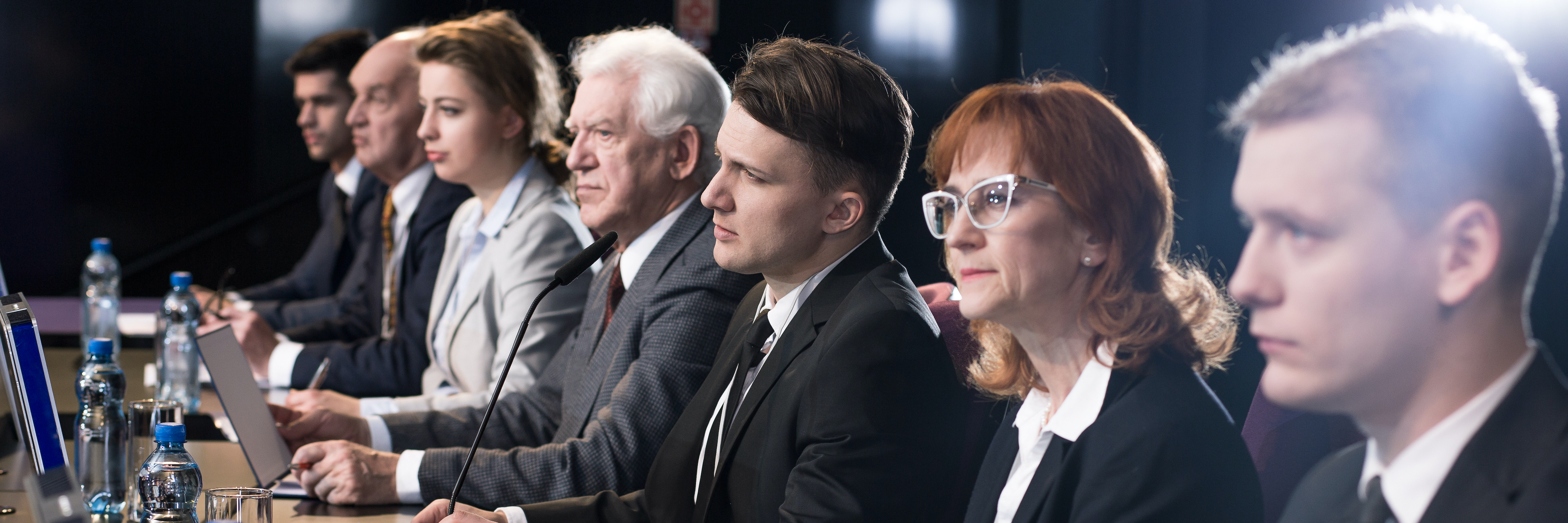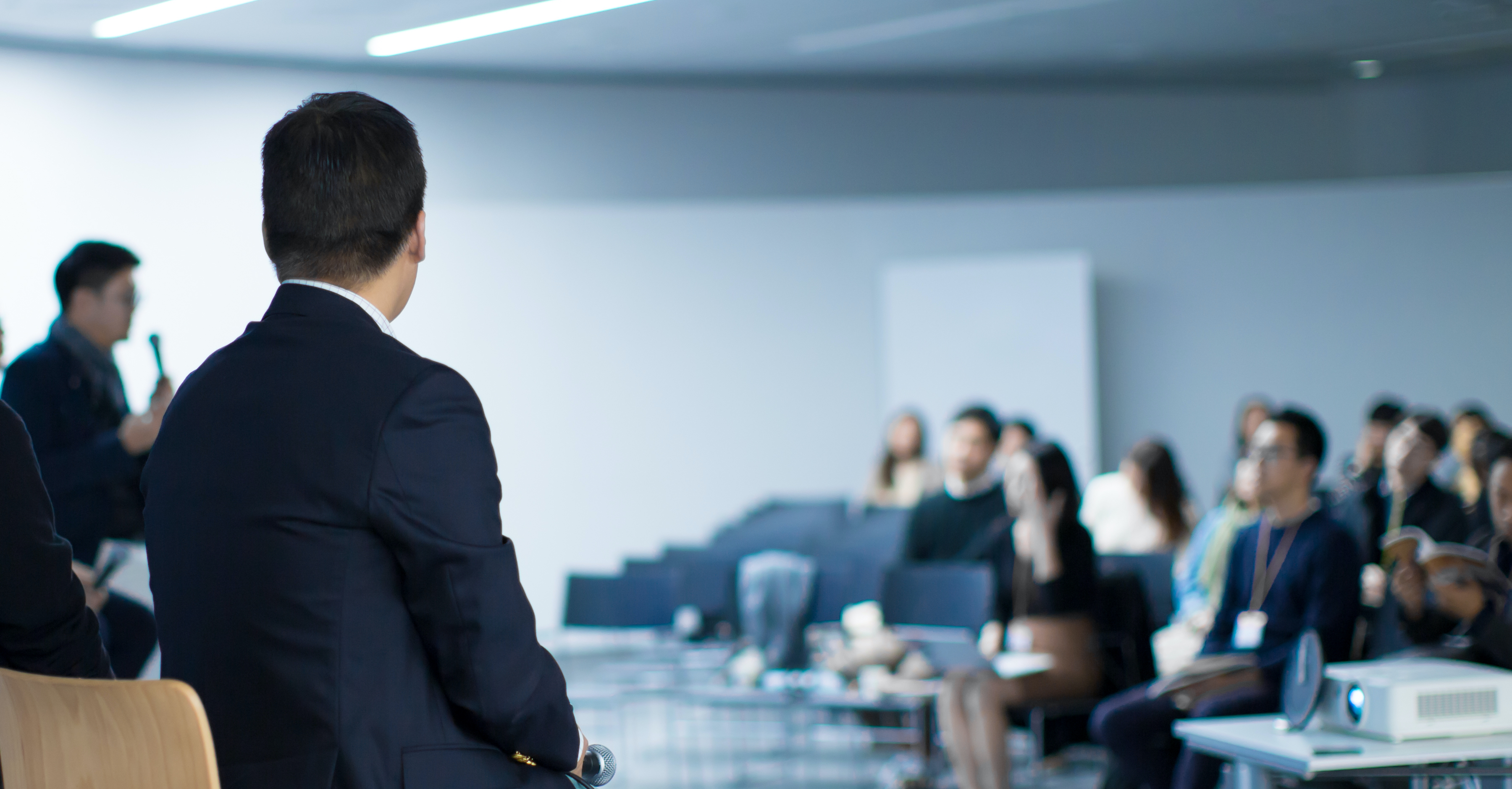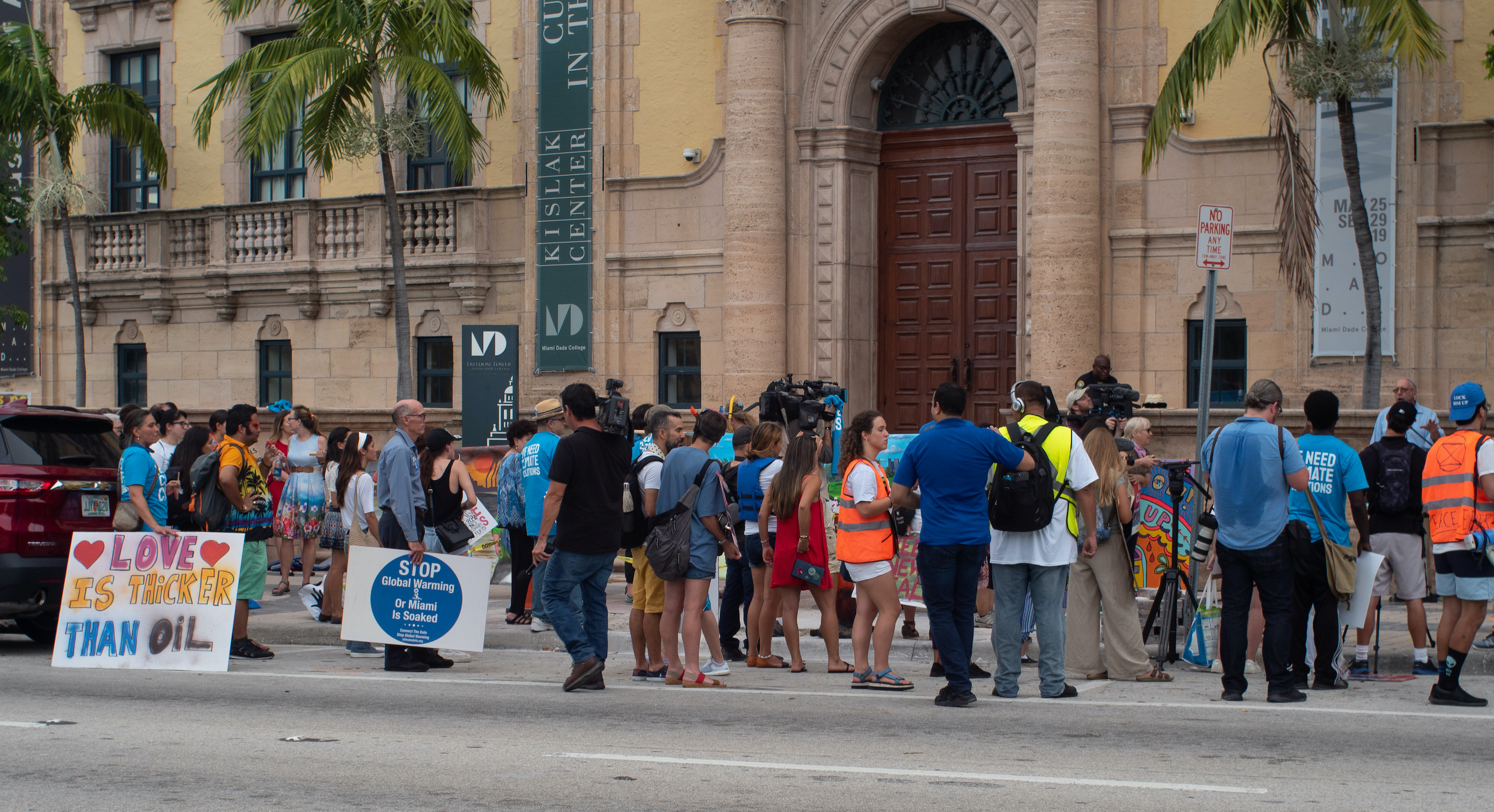There’s a book on arguments from authority written by the philosopher Walton, in which he makes the claim that the mantle of authority in society that used to be held by priests and religious folk has been assumed by scientists. He says that the idea of authority has been transformed from a dog collar to a lab coat; that scientists, being ultimately frail and human, have assumed this lab coat, this sense of responsibility. We speak with authority in areas in which we have none, and we do so regularly. We are often asked to comment on things that are at the edge of our expertise; and in the circumstances in which we get a little outside our knowledge and our experience, our ability to predict is no better than anyone else’s. Yet, we have that sense of authority, both because it’s ordained on us by society in general and because we believe in ourselves.
To some extent, the scepticism with which scientists are viewed currently is earned. I know that that’s not a popular thing to say among scientists – and I’m going to outrage some of my friends – but our ability to exceed the bounds of our knowledge is reasonably pervasive. It’s very difficult to be aware of where your own knowledge ends and where a collective background knowledge begins. Our predisposition is to give lectures, to answer questions, to be a source of knowledge; we’re not taught to listen to people and their problems, their issues and their particular needs. If we listened more, the responses we would give would be different: they’d be more nuanced and more carefully conditioned about what it is we may or may not know.
A rising distrust in science
The distrust of science has been amplified and distorted beyond what is reasonable. It’s quite remarkable. You can talk to people who think like you just by getting on the right website and filtering the right kinds of information. People can believe that the evidence that is fed to those information bubbles is legitimate, and the information they choose to exclude is, of course, tainted, prejudiced or biased. The conditions for people to engineer the information flows to particular subsets of society have arisen in ways that were not anticipated previously and which are having unexpected and perhaps unanticipatable effects on all kinds of things. Debates about GMOs, vaccination and climate change, debates about who should be the next president or premier of a particular country – all kinds of things that we wouldn’t have been able to predict maybe even just 10 years ago.
One part of the solution is for scientists to open the door to listen more to all groups. A group may come to us and say that they don’t agree with vaccination. You may well be a molecular biologist who has worked on vaccination all your life and think that anyone who is against vaccines is insane; but even if you believe that, you still have to listen, because there may be arguments that within a particular frame, within a particular context, make sense. We need to listen to those arguments and to the evidence that supports those arguments. We need to listen to the sources of that evidence and then discuss what it is about that evidence that might be wrong.
By bringing objections about lines of argument and ways that people have interpreted different kinds of data, I may be able to introduce whole new ways of thinking about the problem for them. The way in which the debate is approached is the core element of how the interaction is received, and one can only approach such an interaction honestly; that is, carefully listening to understand the basis for their reasoning. One can’t enter a debate with the assumption that a person is wrong, and that’s a hard thing for a lot of scientists to contemplate.
Letting the outside world in
We need to improve the extent to which what we do is accepted by the outside world. The scientific community has a closed shop attitude: we do things, and other people can learn from us. People should be in the lab with us; if not physically, metaphorically. They should know what we’re doing, why we’re doing it, how we’re doing it, and they should be able to ask questions of our research agenda at any time, because we’re spending public money doing it. People should be able to come to us and ask: Why are you doing this? What are you doing about this problem? Are you working on this? This feedback would be very valuable to help people think about their research agenda, their priorities, where they’re going to get their data from and where they might get their next grant from. It would be immensely beneficial.
Collective intelligence
The great mathematician Terence Tao set up the Polymath Project in the United States, which is a website where members of the public can assist him and his colleagues to solve mathematical problems. One of the first problems was a geometry one that had been around for a long time and had no mathematical solution. He measured the contributions made by professional mathematicians and by amateur mathematicians, put them together, and they found a solution to this problem in a very short period of time. It was a novel solution, and it was right. The professional mathematicians had been important and so had the amateurs, because they found elements of the solution that had not occurred to the professionals. It was only the collective intelligence that could solve this problem.
We also know that crowds can be quite dumb, but if a crowd is managed or approached in a structured way, there is no question that groups of very ordinary individuals will make more accurate and better calibrated predictions about facts like the price of oil, or how many birds will be in a particular patch of forest in two or three years’ time, or the probability of the outcome of events. They will make better judgements than the best regarded expert you can find. That’s quite a confronting finding for people in my job. We’re used to being deferred to for judgements and estimates, and relied on to provide pronouncements on the efficacy of policy interventions or the effectiveness of a particular action.
Advantages of involving the general public
When we get involved with the general public, we get better predictions, better judgements and a better calibration of the outcomes of our actions. It’s also a doorway for people to be involved in decision-making. It will improve the quality of science and the quality of people’s trust in science. They can see its internal workings, they’re involved in making judgements and decisions. To make a judgement, you really do need to understand what’s going on. You need to understand the data and understand what’s at stake. You need to understand the kinds of assumptions people have made, the models they have in mind, the analysis they’ve done. You can’t be a random person off the street: you need to be interested. If you are, qualifications don’t matter. Years of experience, memberships, the regard with which you are held by your peers – none of those things matter. What matters is the only thing that predicts a person’s ability to make a good judgement: their ability to have made judgements like that in the past. If you’ve got a group of them, and they’ve been good in the past, they’ll make very good judgements for the future.
The category of “climate deniers” is too broad. People object to arguments about climate science from a number of different perspectives, spanning the religious to the scientific. It depends upon their arguments, and I wouldn’t have a single set of arguments. If I was to argue with a person who had a different position to mine and their arguments were stronger, their evidence was better, and the sources of that evidence were at least as reliable as mine, they may change my mind. Indeed, even amongst people who claim to hold a religious position on this, there’s a huge variety of positions on what the role of this deity is and what the role of humans is and whether there is a potential for a catastrophic outcome. Some religious groups, despite those positions, seriously believe that there is a potential for a catastrophic outcome to climate change. So, it’s not a simple argument and there’s no simple response.


